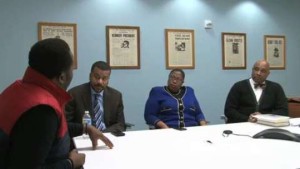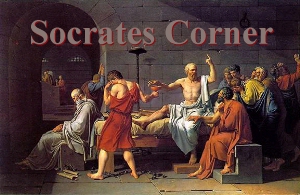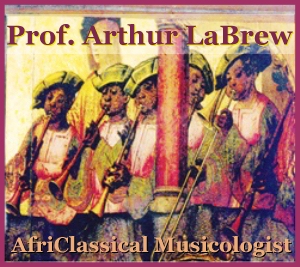Thompson: GOP candidates should debate jobs, Flint

Bankole Thompson interviews local Republicans on the presidential candidates and the Flint water crisis. Max Ortiz, The Detroit News. Click image to play video
Lots of topics ranging from national security, foreign policy, immigration to health care could be front and center at the upcoming Republican presidential debate March 3 at the Fox Theatre.
But some local black GOP members already have identified the boilerplate issues they’d like billionaire Donald Trump, U.S. Sens. Marco Rubio and Ted Cruz, Ohio Gov. John Kasich and neurosurgeon Ben Carson to focus on when they meet in the Motor City.
“I expect the next couple of debates, especially the one in Detroit, to focus more on policy issues. I think the bigger part here is discussing how to bring back jobs to the city of Detroit and to America,” said Wayne Bradley, the GOP state director for African American engagement.
According to the U.S. Department of Labor’s Bureau of Labor Statistics, Detroit’s unemployment rate as of February is at 6.5 percent, compared to the national average of 5.4 percent.
Bradley said the candidates need to “discuss the policy/tax reform that keeps jobs in America and not just shipping them away.”
He also wants Flint, which is an hour away from Detroit, to be a discussion topic in the wake of revelations that more than 10,000 children reportedly drank lead-contaminated water for 18 months in the face of state inaction.
Bradley described the Flint crisis as “a failure of government on all levels.”
Bradley said more than 12,000 requests have been received for tickets to the debate in Detroit. He projected that 1.1 million voters will participate in Michigan’s March 8 GOP primary.
Bankole Thompson interviews local Republicans on the presidential candidates and the Flint water crisis. Max Ortiz, The Detroit News
Jerome Barney, a Detroit attorney who brands himself a “big tent Republican,” said the candidates should offer an economic plan to put people to work and encourage entrepreneurship.
“This (debate) should be about governance and what works for the majority of the people,” Barney said. “The debate should be about issues that will address how blacks in Detroit can capture the American dream. What we have is a war economy and there is no guarantee for jobs and we are not helping the middle class and the poor.”
Barney said the crowded field has left GOPers like himself “in a quagmire” because he believes the party has been hijacked by the far right, so he’s supporting Kasich.
Kasich got 26 percent of the black vote in Ohio in his 2014 re-election bid, Barney added, and the candidate has been helping African-Americans in economic development issues. He said such efforts could help expand the GOP’s outreach to blacks.
Ida Byrd-Hill, the president of Uplift, a strategic management group that works with corporations and school districts, said the debate will yield nothing if it does not address the state of the economy in urban cities like Detroit.
“They (candidates) have yet to deal with economics and jobs in our cities,” Hill said. “The Republican Party has not been willing to have this conversation about how we create jobs for people of color.”
Hill said she has been a member of the GOP for the past 30 years, and that the last Republican presidential candidate she voted for was President George W. Bush.
“If the Republicans want to win a presidential election they need to talk about the economy in urban cities, bring middle-age African-American women to the table,” Hill said. “But the party does not seem to grasp that concept. They’ve yet to deal with the fact people of color are becoming the dominant population. You can debate in Detroit, but you are not going to get our vote if you are not willing to put jobs on the table.”
Kerry Jackson, a commercial realtor and president of Eagle Advisory Group, said he’s concerned the top three contenders — Trump, Cruz and Rubio — are not appealing to a diverse audience.
“These three candidates will not talk about Black Lives Matter or any issues that will end up widening the party,” Jackson said. “The voters they are pandering to are not located in Detroit and Oakland County. They are in Macomb County. That’s why they are not going after the minority vote.”
Jackson, who said he was one of the founders of the Frederick Douglass Society in Michigan, a group of black Republicans, wants to hear about infrastructure and how to rebuild cities like Highland Park as well as the crisis facing public education.
Ellis Washington, an author-activist who supports Trump, said his candidate is appealing to more demographics than he’s getting credit for. “He’s going to bring out the Reagan Democrats,” added Washington, a Detroit native who attended Harvard Law School at the same time as President Barack Obama, and that has party leaders worried that he’ll transform the party.
Carl Fulton, the president and CEO of Majestic Concierge who calls himself an independent, said he is closely watching the GOP primary and wants the candidates to advance plans to help Detroit’s revitalization.
“I also want to hear how they will help bail out Flint residents just as President Obama bailed out the auto industry,” Fulton said. “They need to speak to issues that are affecting Michigan.”
Like Barney, Fulton said he also is impressed with Kasich for being “the only candidate on the Republican stage who is not using every breath to yell out how much they hate Obama.”
bankole@bankolethompson.com
Bankole Thompson is the host of “Redline with Bankole Thompson,” on WDET-101.9 FM at 11 a.m. Thursdays. His column appears Thursdays.
This article was republished from TheDetroitNews.com
Category: Commentary






